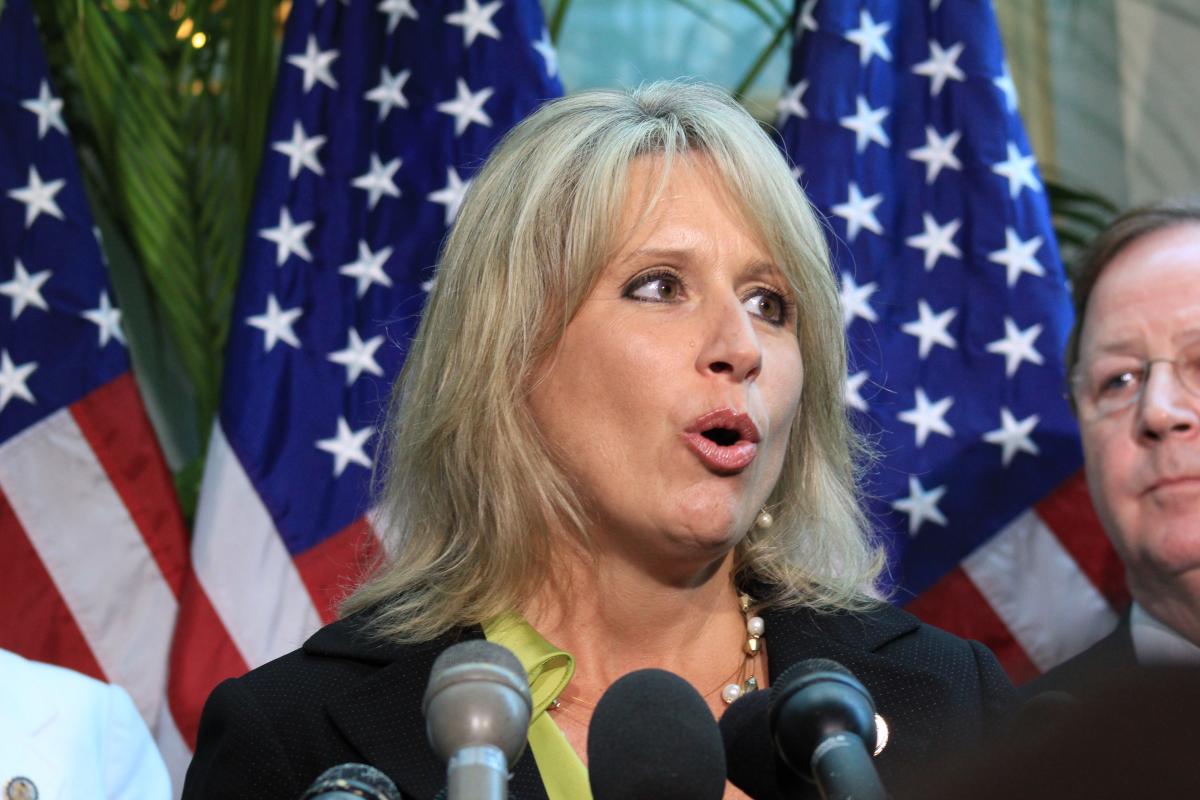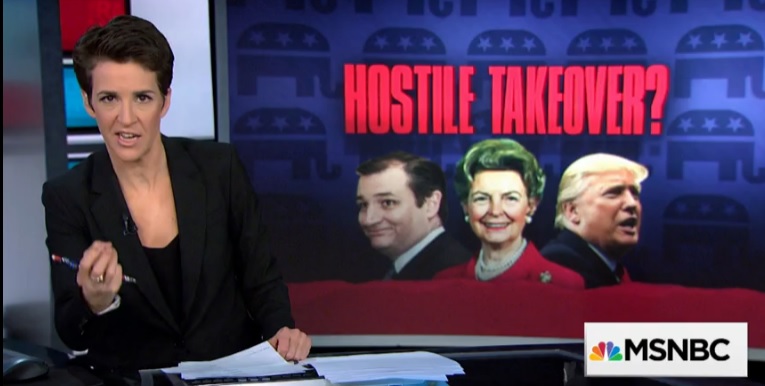As the Tea Party celebrates its fifth anniversary, we decided to look at five of the myths that Tea Party supporters, and many pundits, continue to believe about the far-right movement.
Myth #1: Tea Party Cares About Economic Stewardship
If Tea Party activists believe they are on a crusade to save the American economy, they have an odd way of showing it. The Tea Party was responsible for an economically harmful and utterly pointless government shutdown and has several times threatened economic catastrophe by refusing to raise the debt limit — with their hostage-taking strategycontributing to a S&P credit downgrade and lower consumer confidence.
The Treasury Department warned in the midst of last year’s government shutdown [PDF]: “A default would be unprecedented and has the potential to be catastrophic: credit markets could freeze, the value of the dollar could plummet, U.S. interest rates could skyrocket, the negative spillovers could reverberate around the world, and there might be a financial crisis and recession that could echo the events of 2008 or worse…. Because the debt ceiling impasse contributed to the financial market disruptions, reduced confidence and increased uncertainty, the economic expansion was no doubt weaker than it otherwise would have been.”
One problem might be that Tea Party leaders seem to have no clue what they are talking about.
Tea Party politicians dismissed concerns about failing to raise the debt limit — with one Tea Party-aligned congressman arguing that such a move would help the economy — and didn’t seem to grasp the fact that “raising the debt ceiling simply lets Treasury borrow the money it needs to pay all U.S. bills and other legal obligations in full and on time” and isn’t a “license to spend more.”
Similarly, a Bloomberg News poll found that 93 percent of Tea Party Republicans believe the federal budget deficit is growing, even while it is rapidly shrinking.
Myth #2: Tea Party Wants Entitlement Cuts
We keep hearing about how the Tea Party will lead a push to cut entitlement programs, but Tea Party members are disproportionately entitlement program benefactors. A New York Times/CBS poll found that Tea Party members are more likely than others to claim that they or a family member receives Social Security benefits or is covered by Medicaid, and 62 percent believe “the benefits from government programs such as Social Security and Medicare [are] worth the costs of those programs.”
According to a McClatchy-Marist poll, 76 percent of Tea Party supporters oppose Social Security and Medicare cuts while 70 percent said they were against cuts to Medicaid.
Of course, many Tea Party supporters don’t seem to mind public programs when they are the ones benefiting from them, and Republicans continue to criticize reductions in future Medicare spending that they voted for.
“[W]hat many of the Tea Party candidates have found is that when push comes to shove, their backers want to protect their entitlements as much as the next guy,” writes Shikha Dalmia of the Reason Foundation. “In fact, much of the fury of the Tea Partiers against government stimulus and bailouts might have less to do with any principled belief in the limits of government and more to do with fear of what this will do to their own entitlements.”
Myth #3: Tea Party Faces Government Persecution
The Tea Party has desperately clutched onto a conspiracy theory that the IRS specifically targeted Tea Party groups to help seal President Obama’s re-election. Of course, it turns out that the IRS actually scrutinized liberal and conservative groups alike. The faux-scandal was hyped and distorted by congressional Republicans, and Tea Party leaders predicted that it would rejuvenate the movement.
As Alex Seitz-Wald reported: “We know that in fact the IRS targeted lots of different kinds of groups, not just conservative ones; that the only organizations whose tax-exempt statuses were actually denied were progressive ones; that many of the targeted conservative groups legitimately crossed the line; that the IG’s report was limited to only Tea Party groups at congressional Republicans’ request; and that the White House was in no way involved in the targeting and didn’t even know about it until shortly before the public did. In short, the entire scandal narrative was a fiction.”
Rather than face facts, leaders are out with a fresh and similarly dubious conspiracy that proposed IRS rules on political activity by certain nonprofits will target conservative organizations for discrimination.
Myth #4: Tea Party Ignores Social Issues
Many Tea Party leaders — including Ted Cruz, Rand Paul, Louie Gohmert, Michele Bachmann, Mike Lee, Jim DeMint and Glenn Beck — are also favorites of the Religious Right. The GOP victories in the 2010 midterm election brought about what the Daily Beast called “one of the most religiously conservative [House of Representatives] in recent history” and Republican politicians in Congress and state legislatures immediately pursued a crackdown on abortion rights.
Glenn Beck’s massive 2010 Tea Party rally on the National Mall turned into a religious revival meeting. Last year, even the openly gay founder of the National Capital Tea Party Patriots addressed an anti-gay marriage rally in front of the Supreme Court. And far-right pastor Rick Scarborough decided to establish his own group, Tea Party Unity, to promote his call for a “class action lawsuit” against homosexuality.
Pew found that just as “the Tea Party is much more Republican and conservative than the public as a whole… Tea Party supporters also tend to take socially conservative positions on abortion and same-sex marriage.” Tea Party activists oppose marriage equality and abortion rights at rates nearly identical to Republicans at large, and are just as likely to cite religion as the driving force on their stances on such issues.
A 2013 American Values survey observed that the majority of Tea Party activists “identify with the Christian Right,” and a study by political scientists Robert Putnam and David Campbell found Tea Party members to be “disproportionately social conservatives” with a penchant for the “overt use of religious language and imagery.” “It thus makes sense that the Tea Party ranks alongside the Christian Right in unpopularity,” they added.
Myth #5: Tea Party Has Wide Popularity
Tea Party politicians like to fashion themselves as champions of a broadly popular movement that has supporters across partisan lines. Bachmann thinks the Tea Party represents “virtually 90 percent of America” and a poll of Tea Party supporters found that 84 percent agree that “the views of the people involved in the Tea Party movement generally reflect the views of most Americans.” Beck even believes that most Americans are in the Tea Party and to the right of the GOP.
But while the Tea Party is far from dead, a majority of Americans have an unfavorable view of the right-wing movement.
In December, Gallup found that the Tea Party has never held widespread support:









